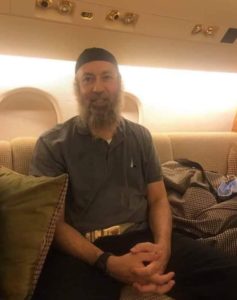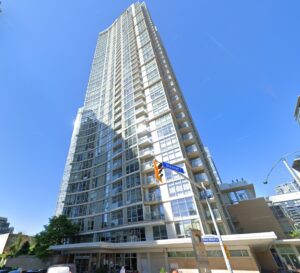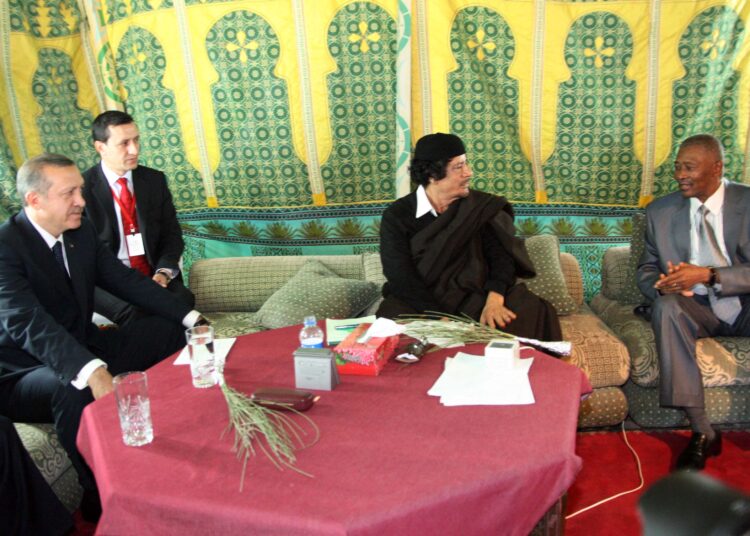Abdullah Bozkurt/Stockholm
UN investigators have determined that Turkey violated a UN Security Council resolution by hosting Saadi Muammar Mohammed Qadhafi, a son of the late Libyan dictator Muammar Qadhafi , in Istanbul, thus breaching the UN sanctions regime.
Confirmation of Gaddafi’s son’s official residence in Turkey was acquired by the Panel of Experts on Libya, tasked with monitoring UN sanctions on the country. This information came to light when Qadhafi attempted to sell a property registered in his name in Canada. The panel incorporated this new information into its report, which was submitted to the UN Security Council on September 15, 2023.
Designated under UN sanctions and subjected to both an asset freeze and a travel ban, Qadhafi sought to sell a contested property by securing a power of attorney from the Libyan Consulate General in Istanbul. The power of attorney, recorded on November 11, 2022 with reference No. 75/1, identified Qadhafi’s official residence as Turkey.
On June 27, 2023 UN investigators sought clarification from Turkey regarding the implementation of the asset freeze and travel ban. Turkey, however, declined to respond.
The power of attorney signed by Saadi Muammar Mohammed Qadhafi in Libya’s consulate in Istanbul:
This is not the first instance of Turkey disregarding UN requests for information on the whereabouts of Qadhafi. When he was released from a prison in Libya along with several others, he reportedly departed for Turkey on September 5, 2021. UN investigators, uncertain about whether he stayed in Turkey or traveled to a third country, inquired with the Turkish government at the time. However, Turkey declined to provide a response.
At that time Qadhafi’s journey to Turkey received approval from Islamist President Recep Tayyip Erdogan, who had previously fostered strong ties with Qadhafi’s father during his tenure in Libya. The Turkish Foreign Ministry orchestrated the extraction from Libya of Qadhafi. The Libyan government plane designated for this special flight, a Dassault Falcon 900EX, touched down in Istanbul on September 6 at 1:37 a.m.
Turkey has never officially acknowledged hosting Qadhafi and has continuously remained unresponsive to numerous letters from UN investigators. The 2022 power of attorney, bearing Qadhafi’s signature and fingerprint, serves as official confirmation of his presence in Turkey.
Qadhafi, the former commander of Libya’s Special Forces, fled the country following a civil war. In March 2014 he was apprehended in Niger and extradited to Libya to answer criminal charges. He was released two years after his acquittal in 2018, purportedly under the condition that he would depart Libya.

On the day he arrived in Turkey, the press release issued by Libya’s Government of National Unity stated that “such efforts will promote comprehensive national reconciliation, the basis of which is enforcement of and respect for the law.” However, the statement did not specify Qadhafi’s travel destination.
The property Qadhafi attempted to sell is identified as a luxury waterfront condo situated at 10 Navy Wharf Court in the heart of Toronto, as indicated in the power of attorney.
Qadhafi’s name surfaced in Canada during a 2019 bribery scandal involving Canada’s largest engineering firm, SNC-Lavalin. The company admitted guilt in paying Qadhafi $28 million in bribes to secure construction contracts in Libya. The company also allegedly disbursed over $2 million for Saadi’s 2008 visit to Canada, including expenses ranging from escort services to a Spice Girls concert.
Turkish President Erdogan was reportedly personally invested in Qadhafi’s stay in Turkey, apparently with the aim of benefiting from Qadhafi’s wealth held abroad.

Erdogan also cultivated ties with Seif al-Islam el-Qadhafi, another son of the country’s former dictator. In a 2021 New York Times interview Seif revealed that Erdogan frequently called him in 2011. He claimed that it was Erdogan who encouraged him to leave the country, claiming that the uprisings in Libya were a foreign plot that had been planned far in advance.
In July 2011 the Erdogan government took steps to seize the shares of the Libyan Foreign Bank, owned by the Libyan Central Bank, in the Arap-Türk Bankası (A&T Bank). Following this move, the government replaced board members with trustees it appointed.
The Libyan Foreign Bank holds a majority 62.37 percent share in A&T Bank, followed by Turkish private lender İş Bankası, Turkey’s state bank Ziraat Bankası and the Kuwait Investment Co. Following the government’s seizure of shares in July 2011, the Erdogan administration continued to oversee the operations of the bank until March 2012. During this period, it is reported that around 2 billion Turkish lira from the bank’s coffers were allegedly utilized by the Turkish government to support various factions in Libya.
A&T Bank came under the scrutiny of Turkish investigators in 2013 during their investigation into an organized crime syndicate that implicated members of the Erdogan family, including his younger son Bilal Erdogan and son-in-law Berat Albayrak. The graft probe, disclosed on December 25, 2013, revealed that Erdogan had allegedly established a “pool media,” which referred to a fund contributed by pro-government businessmen in exchange for favors, particularly in the form of securing public tenders.
The full text of the UN Libya report:
Erdogan wanted to create his own media by purchasing the Sabah-ATV media outlet and ordered one of his ministers, Binali Yıldırım, to collect $630 million from businesspeople close to him in exchange for granting major public tenders in no-competition bidding. Some of the money in this kickback scheme would be obtained from A&T Bank as well as its shareholder Ziraat, both of which were under the control of the government at the time.
The bank was also in play in an Iran sanctions busting scheme and exposed when a damning revelation was made in a corruption case involving Turkish Iranian national Reza Zarrab, who bribed senior government officials including cabinet ministers and cultivated personal ties with Erdogan. The case, which went public on December 13, 2013, showed that Zarrab secretly communicated with Özgür Erker, an A&T Bank official, to discuss a money laundering scheme on behalf of Iran.
A wiretap obtained on October 5, 2012 revealed that Zarrab talked to Erker about a new scheme to launder Iranian money that would first arrive at state lender Halkbank, then move to A&T Bank. Using his position at the bank, Erker would later disburse the cash to Zarrab. Both men agreed on the scheme. When Zarrab asked Erker if others in bank management could create problems for them, Erker said, “There won’t be a problem.” Erker currently runs dairy company Pak Sut in the breakaway Turkish Republic of Northern Cyprus, which is recognized only by Turkey.
Erdogan, who was incriminated in that probe, stepped in to derail the prosecution and helped release all the suspects after he orchestrated the removal of the lead prosecutors and investigators in the case. All suspects including Zarrab were later acquitted by new judges who were brought in to oversee the case by the Erdogan government.
However, Zarrab was arrested by the FBI in Miami in 2016 and charged by the US Attorney for the Southern District of New York with engaging in hundreds of millions of dollars’ worth of transactions on behalf of the Iranian government, money laundering and bank fraud. He made a plea deal with prosecutors and cooperated in a US federal case that exposed the role of Erdogan, who had instructed Turkish state banks to participate in the multi-billion dollar scheme in exchange for kickbacks.
At the end of the trial, Mehmet Hakan Atilla, the deputy general manager of state lender Halkbank, was convicted and served time before returning to Turkey. The co-conspirators who were indicted by the US federal prosecutors including the former economy minister in the Erdogan cabinet remain beyond reach.












